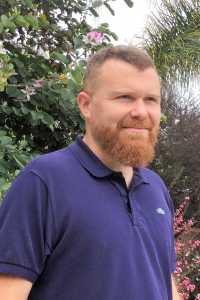WATERTOWN — Dr. Julien Zarifian, Associate Professor in American History at the University of Cergy-Pontoise, France, and Fulbright Visiting scholar, University of Southern California (USC) Shoah Foundation Center for Advanced Genocide Research, will present a lecture titled “From Humanitarianism to Abetting Denial: The US and Recognition of the Armenian Genocide” on Wednesday, May 30, at 7:30 p.m. at the AGBU Center, 247 Mt. Auburn Street, Watertown.
The lecture is sponsored and organized by the National Association for Armenian Studies and Research (NAASR)/Calouste Gulbenkian Foundation Series on Contemporary Armenian Issues and Outreach Lecturing Fund (OLF) of the Fulbright Scholar Program.
The United States under President Woodrow Wilson became heavily involved in providing humanitarian and political support to the Armenian survivors of genocide and displacement during World War I. However, US.support began to falter during the 1930s, and in the post-World War II period American authorities responded ambiguously to Armenian demands that the mass killings be recognized as genocide. The executive branch systematically blocked efforts to pass legislation recognizing it as such.
In this lecture, Zarifian will analyze why, despite decades of efforts and some positive results, the Armenian-American advocacy groups have not yet obtained the full recognition of the Genocide by the US federal authorities and how Turkey and Turkish groups have lobbied to prevent such a recognition.
Zarifian is associate professor in American History at the University of Cergy-Pontoise, France, and this academic year he is a Fulbright scholar with the USC Shoah Foundation Center for Advanced Genocide Research. His research interests involve US foreign policies in Eurasia, the role of ethnic groups in US political life, and the importance of memory issues in US political life. Currently, his main research project focuses on “The US and the Question of the Armenian Genocide, from 1915 to the Present.”









